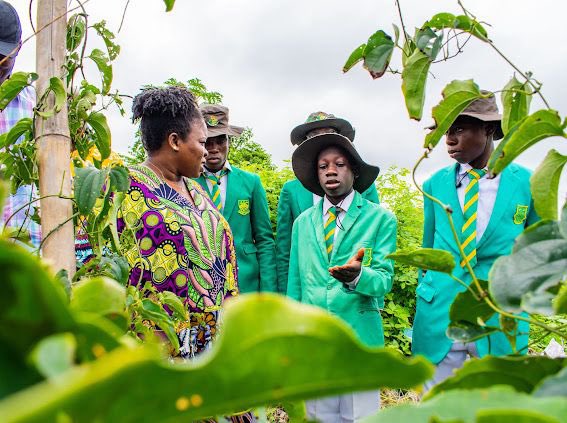
The Lagos State Government has reiterated its commitment to building the next generation of farmers through the Lagos Agricultural Scholars Programme (LASP) — an initiative designed to introduce secondary school students to modern, practical agriculture while promoting long-term food security.
Commissioner for Agriculture and Food Systems, Ms. Abisola Olusanya, stated this during the commissioning of projects implemented under the programme at Ansar-ur-Deen Grammar School, Surulere; CMS Grammar School, Bariga; Holy Child College, Ikoyi; and Vetland Senior Grammar School, Agege.
Olusanya described the initiative as a strategic investment in the future, saying it seeks to ignite students’ interest in agriculture by integrating technology and innovation into food production, processing, and marketing.
“The Lagos Agric Scholars Programme is an evolution of our long-standing efforts to take agriculture into schools,” she said. “We are repositioning it to align with modern realities and to show young people that agriculture is not just about farming — it’s about innovation, business, and feeding the future.”
The Commissioner noted that many young Nigerians are drawn to careers in entertainment, technology, and sports, often overlooking opportunities in agriculture. She explained that the programme aims to change that perception by making agriculture more attractive, interactive, and profitable.
Olusanya highlighted that the initiative focuses on key agricultural value chains, including aquaculture, horticulture, and poultry, supported by sustainable systems that demonstrate real-life farming practices within schools.
She added that exposing students to hands-on agricultural technologies would help reshape their attitudes and inspire them to see the sector as a viable and rewarding career path.
Speaking on the “Produce for Lagos Programme,” the Commissioner disclosed that the ongoing registration of farmers aligns with the state’s ₦500 billion Offtake Guarantee Fund, which is designed to harmonise farmers’ data and categorise them by value chain, scale, and specialisation.
According to her, registration — currently open via produceforlagos.com — is available to farmers within and outside Lagos, as well as to service providers across the agricultural value chain.
Olusanya assured stakeholders that as the programme expands, every participant would have a role to play in strengthening food production and ensuring sustainable food distribution across Lagos State.
